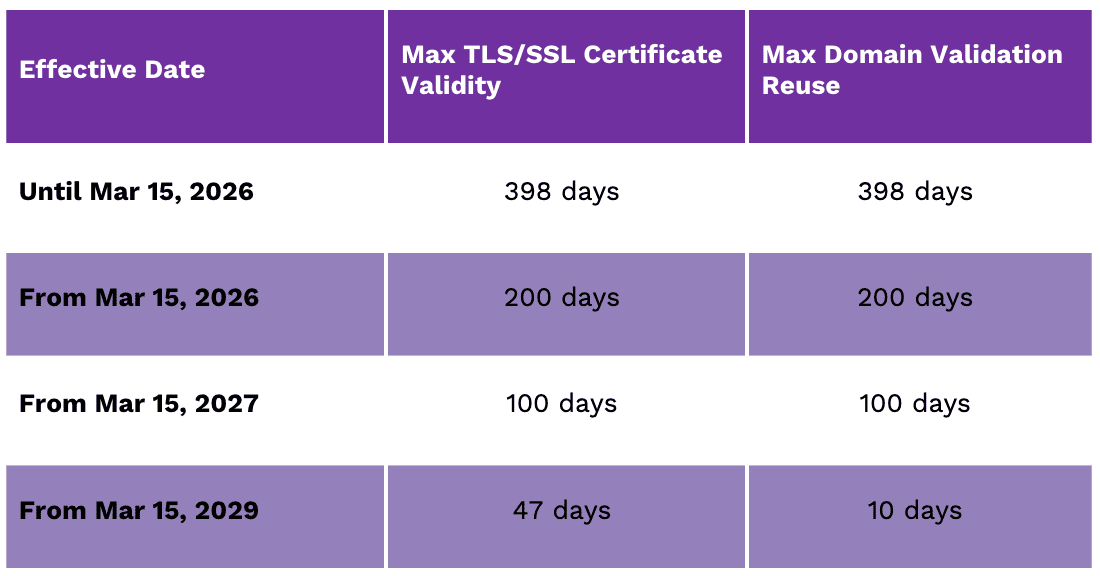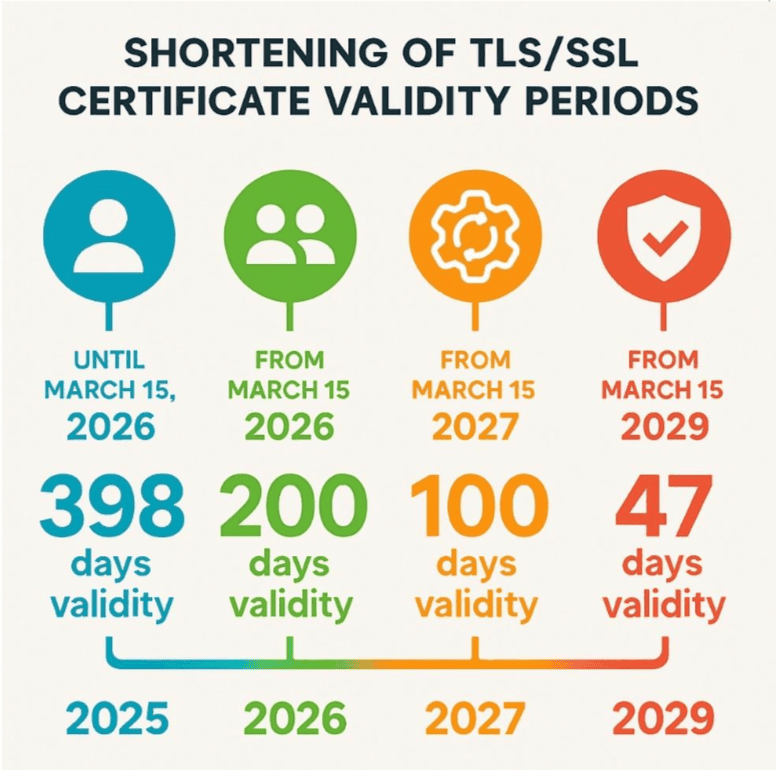TLS/SSL Certificate Validity Reduced to 47 Days: What You Need to Know

Overview
The CA/Browser Forum has officially voted to shorten the maximum validity period of publicly trusted TLS/SSL certificates to just 47 days. This change, driven by major browser vendors like Apple and Google, aims to enhance internet security and enforce automation in certificate lifecycle management. The transition will occur gradually over the next few years, culminating in the 47-day limit by March 15, 2029.
Why Is This Happening?
Shorter certificate lifespans reduce the risk of compromised or misissued certificates and encourage organizations to adopt automated certificate management. This move aligns with broader cybersecurity goals, including preparing for quantum-safe cryptography and improving the resilience of the Web PKI
Key Dates and Changes
The following table outlines the timeline for the reduction in certificate validity and domain validation reuse periods:


What Does This Mean for You?
Organizations will need to renew certificates more frequently, which can be challenging without automation. Manual certificate management increases the risk of outages and security lapses. To stay ahead of these changes, it's crucial to adopt automated solutions that streamline certificate issuance, renewal, and validation.
How Trixit CLM Solution Can Help
Trixit partner's MAYID CLM solution is designed to handle the complexities of certificate lifecycle management. With built-in automation, it ensures timely renewals, reduces human error, and maintains compliance with evolving standards. This is especially important as the reuse period for domain validation drops to just 10 days by 2029.
Key features of MAYI ID CLM solution that will be essential in managing shorter certificate lifespans include:
- Automated Renewals: CLM systems can automate the renewal process, ensuring certificates are renewed before they expire, thus preventing outages.
- Centralized Visibility: A CLM platform provides a single view of all certificates across the organization, making it easier to track expiration dates and manage the increased frequency of renewals.
- Discovery Capabilities: CLM solutions can discover all certificates within an organization's infrastructure, including those that may be unmanaged or unknown ("shadow certificates"), ensuring they are also subject to the new, shorter lifecycles.
- Alerts and Notifications: Timely alerts about upcoming expirations are vital to proactive management, especially with shorter validity periods.
- Integration with Certificate Authorities and Infrastructure: Seamless integration with various CAs and IT infrastructure components allows for efficient automation of certificate operations.
Final Thoughts
The shift to 47-day certificate lifetimes marks a significant change in digital security practices. While it introduces operational challenges, it also presents an opportunity to modernize and secure your infrastructure. By embracing automation and trusted CLM solutions, organizations can navigate this transition smoothly and enhance their overall cybersecurity posture.
Get in touch
Contact us today to discover how our team can streamline your certificate lifecycle management through expert automation and implementation support.

Prague office3rd floor, Drtinova 467/2a,
Prague 5, 150 00,
Czech Republic
